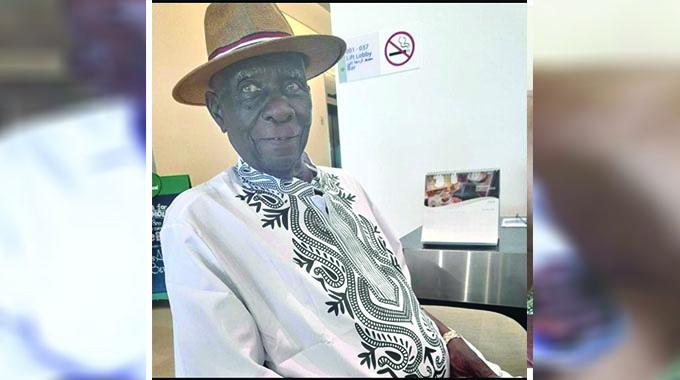News / National
Njani Moyo only accorded liberation hero status
4 hrs ago | Views

President Emmerson Mnangagwa has conferred Liberation Hero Status on the late veteran of Zimbabwe's liberation struggle, Elias Sikholiwe Njani Moyo, who passed away on April 26 at the age of 100.
Moyo, a revered nationalist and long-time member of the Zimbabwe African People's Union (ZAPU), will be laid to rest on Saturday at Terelyne Village under Chief Gwebu in Umzingwane District, Matabeleland South Province. He died at Mater Dei Hospital after a prolonged illness.
In a tribute shared by his great-grandson and family spokesperson, Mr Mkhululi Chimoio, the family expressed gratitude for the national recognition, noting Moyo's sacrifices in pursuit of Zimbabwe's independence.
"Mr Moyo dedicated his life selflessly to the liberation of Zimbabwe and the empowerment of its people. His unwavering commitment to the struggle for freedom resulted in his imprisonment for life by the Smith regime - a sacrifice emblematic of his deep love for the nation," Chimoio said.
Beyond his contribution to the liberation movement, Moyo was a respected businessman in Mawabeni, where he worked to uplift local communities through entrepreneurship and mentorship. "He played a significant role in uplifting communities through economic empowerment and business development, with many families benefiting from his wisdom, leadership, and foresight," said Chimoio.
Moyo was sentenced to life imprisonment in 1976 at the age of 50, following the alleged killing of a white storekeeper, Mr Leonard Ashly, at Mbalabala. Rhodesian media reports at the time claimed Moyo had harboured three freedom fighters at his home for four nights, who were then accused of carrying out the shooting.
One such article, titled "This man lost all – through helping the terrorists," accused Moyo of destroying his life by aiding the fighters. The propaganda piece highlighted the personal losses he endured - from losing his business and steady income to selling his cattle to pay legal fees - in an apparent attempt to discourage others from supporting the liberation cause.
After independence, Moyo was pardoned by the new government, and his life came to symbolize the resilience, sacrifice, and dignity of Zimbabwe's freedom fighters who endured persecution under colonial rule.
His burial on Saturday is expected to be attended by senior government officials, war veterans, and members of the public who remember his unwavering contribution to the liberation and development of Zimbabwe.
Moyo, a revered nationalist and long-time member of the Zimbabwe African People's Union (ZAPU), will be laid to rest on Saturday at Terelyne Village under Chief Gwebu in Umzingwane District, Matabeleland South Province. He died at Mater Dei Hospital after a prolonged illness.
In a tribute shared by his great-grandson and family spokesperson, Mr Mkhululi Chimoio, the family expressed gratitude for the national recognition, noting Moyo's sacrifices in pursuit of Zimbabwe's independence.
"Mr Moyo dedicated his life selflessly to the liberation of Zimbabwe and the empowerment of its people. His unwavering commitment to the struggle for freedom resulted in his imprisonment for life by the Smith regime - a sacrifice emblematic of his deep love for the nation," Chimoio said.
Beyond his contribution to the liberation movement, Moyo was a respected businessman in Mawabeni, where he worked to uplift local communities through entrepreneurship and mentorship. "He played a significant role in uplifting communities through economic empowerment and business development, with many families benefiting from his wisdom, leadership, and foresight," said Chimoio.
Moyo was sentenced to life imprisonment in 1976 at the age of 50, following the alleged killing of a white storekeeper, Mr Leonard Ashly, at Mbalabala. Rhodesian media reports at the time claimed Moyo had harboured three freedom fighters at his home for four nights, who were then accused of carrying out the shooting.
One such article, titled "This man lost all – through helping the terrorists," accused Moyo of destroying his life by aiding the fighters. The propaganda piece highlighted the personal losses he endured - from losing his business and steady income to selling his cattle to pay legal fees - in an apparent attempt to discourage others from supporting the liberation cause.
After independence, Moyo was pardoned by the new government, and his life came to symbolize the resilience, sacrifice, and dignity of Zimbabwe's freedom fighters who endured persecution under colonial rule.
His burial on Saturday is expected to be attended by senior government officials, war veterans, and members of the public who remember his unwavering contribution to the liberation and development of Zimbabwe.
Source - The Heralf























